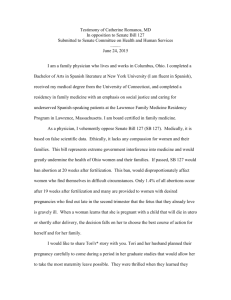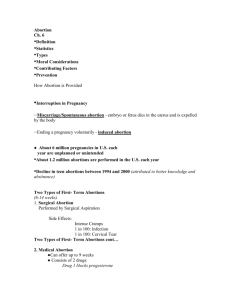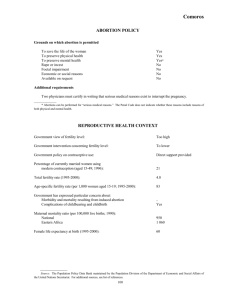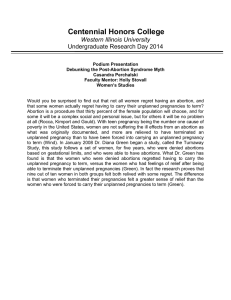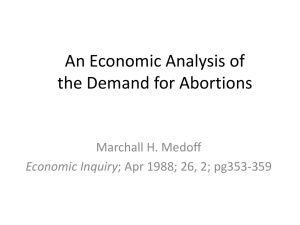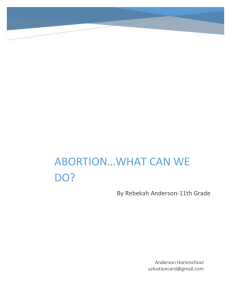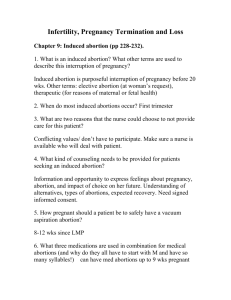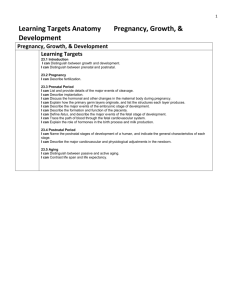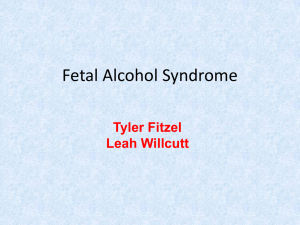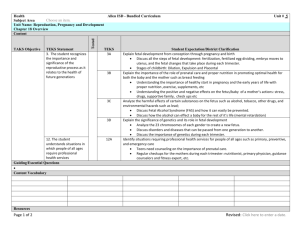Testimony of Erika Boothman, MPH Medical Student at Ohio State
advertisement
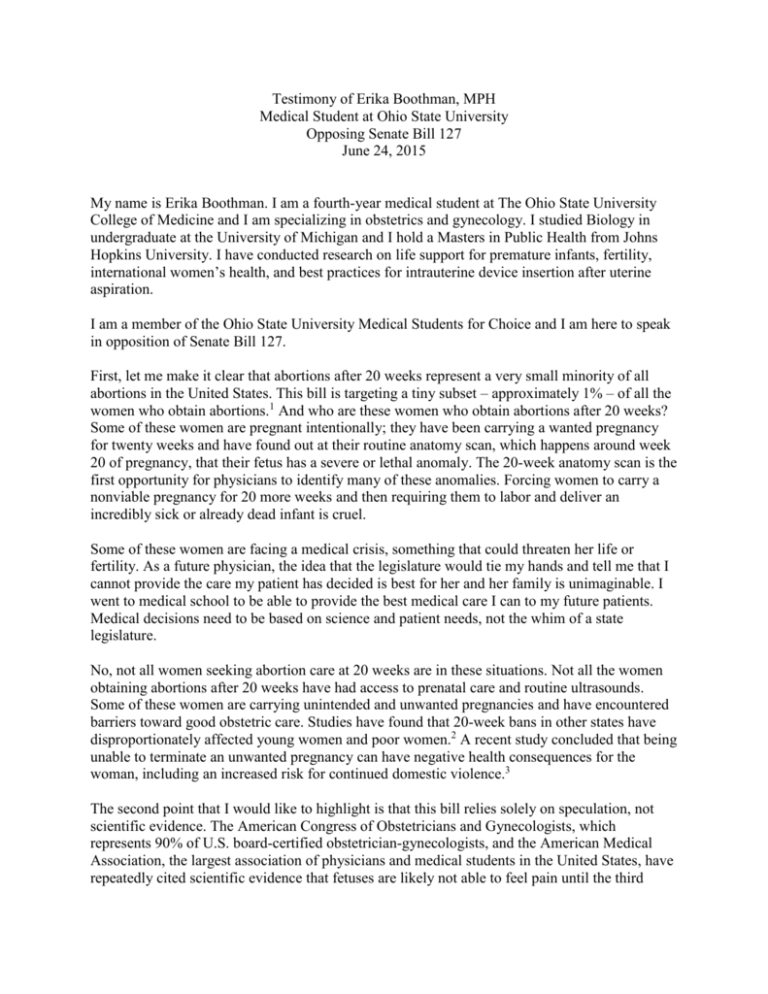
Testimony of Erika Boothman, MPH Medical Student at Ohio State University Opposing Senate Bill 127 June 24, 2015 My name is Erika Boothman. I am a fourth-year medical student at The Ohio State University College of Medicine and I am specializing in obstetrics and gynecology. I studied Biology in undergraduate at the University of Michigan and I hold a Masters in Public Health from Johns Hopkins University. I have conducted research on life support for premature infants, fertility, international women’s health, and best practices for intrauterine device insertion after uterine aspiration. I am a member of the Ohio State University Medical Students for Choice and I am here to speak in opposition of Senate Bill 127. First, let me make it clear that abortions after 20 weeks represent a very small minority of all abortions in the United States. This bill is targeting a tiny subset – approximately 1% – of all the women who obtain abortions.1 And who are these women who obtain abortions after 20 weeks? Some of these women are pregnant intentionally; they have been carrying a wanted pregnancy for twenty weeks and have found out at their routine anatomy scan, which happens around week 20 of pregnancy, that their fetus has a severe or lethal anomaly. The 20-week anatomy scan is the first opportunity for physicians to identify many of these anomalies. Forcing women to carry a nonviable pregnancy for 20 more weeks and then requiring them to labor and deliver an incredibly sick or already dead infant is cruel. Some of these women are facing a medical crisis, something that could threaten her life or fertility. As a future physician, the idea that the legislature would tie my hands and tell me that I cannot provide the care my patient has decided is best for her and her family is unimaginable. I went to medical school to be able to provide the best medical care I can to my future patients. Medical decisions need to be based on science and patient needs, not the whim of a state legislature. No, not all women seeking abortion care at 20 weeks are in these situations. Not all the women obtaining abortions after 20 weeks have had access to prenatal care and routine ultrasounds. Some of these women are carrying unintended and unwanted pregnancies and have encountered barriers toward good obstetric care. Studies have found that 20-week bans in other states have disproportionately affected young women and poor women.2 A recent study concluded that being unable to terminate an unwanted pregnancy can have negative health consequences for the woman, including an increased risk for continued domestic violence.3 The second point that I would like to highlight is that this bill relies solely on speculation, not scientific evidence. The American Congress of Obstetricians and Gynecologists, which represents 90% of U.S. board-certified obstetrician-gynecologists, and the American Medical Association, the largest association of physicians and medical students in the United States, have repeatedly cited scientific evidence that fetuses are likely not able to feel pain until the third trimester, which is well after 20 weeks.4 In a 2010 report, the Royal College of Obstetricians and Gynecologists stated that fetuses younger than 24 weeks lack key information processing parts of the brain and are therefore physically unable to feel pain.5 Both organizations have repeatedly emphasized that fetal reflexes are not evidence of pain perception. One study states clearly, “Neither withdrawal reflexes nor hormonal stress responses to invasive procedures prove the existence of fetal pain, because they can be elicited by nonpainful stimuli and occur without conscious cortical processing.” 4 This Bill was invented out of emotion and not science. It interferes with the doctor-patient relationship and prevents physicians from practicing evidence-based medicine. It would deny Ohio women access to safe and legal abortion. If enacted into law, this Bill would compromise my ability to care for my patients and to offer them the best medical care available. I was born and raised in the Midwest. I intend on practicing in the Midwest, but I want to live in a state that allows me to make decisions based on the fifteen years of higher education that I will have obtained, and not on legislature written by nonscientists. Citations 1. 2. 3. 4. 5. Pazol K, Creanga AA, Burley KD, Hayes B, Jamieson DJ. Abortion Surveillance — United States, 2010. Morbidity & Mortality Weekly Report. Surveillance Summaries. 2013;62(SS-8):1-44. Foster DG, Kimport K. Who seeks abortions at or after 20 weeks? Perspect Sex Reprod Health. 2013;45(4):210-218. Roberts SC, Biggs MA, Chibber KS, Gould H, Rocca CH, Foster DG. Risk of violence from the man involved in the pregnancy after receiving or being denied an abortion. BMC Med. 2014;12:144. Lee SJ, Ralston HJ, Drey EA, Partridge JC, Rosen MA. Fetal pain: a systematic multidisciplinary review of the evidence. JAMA. 2005;294(8):947-954. Gynaecologists RCoOa. Fetal awareness; review of research and recommendations for practice. Report of a working party. 2010.
